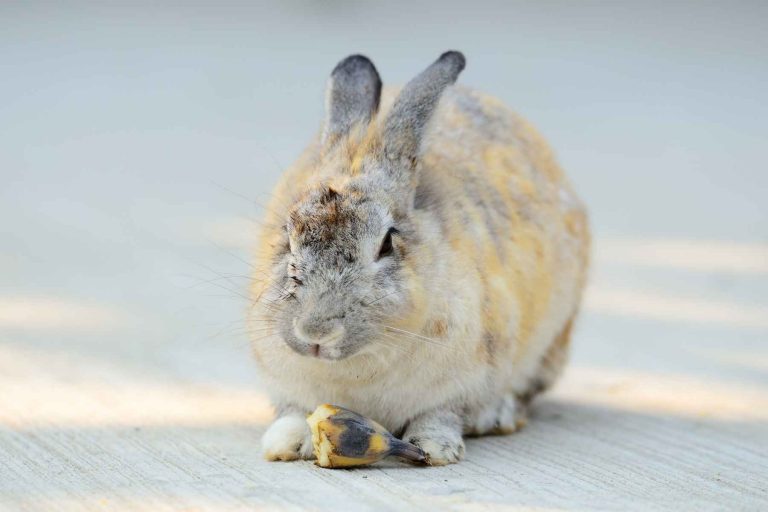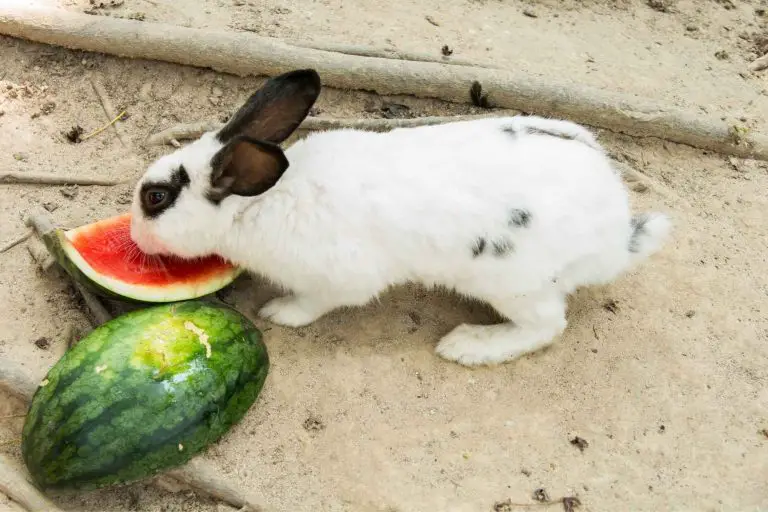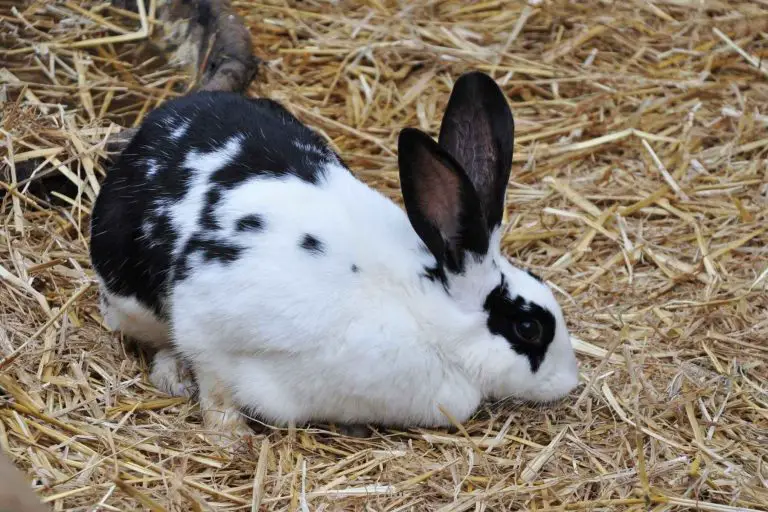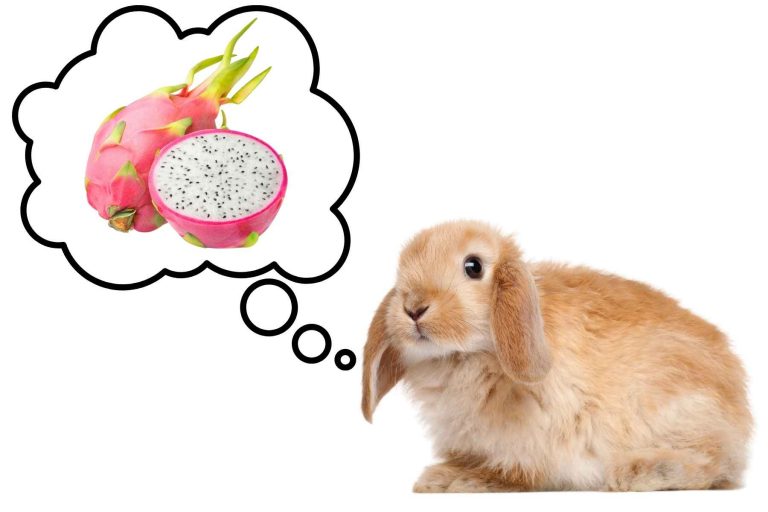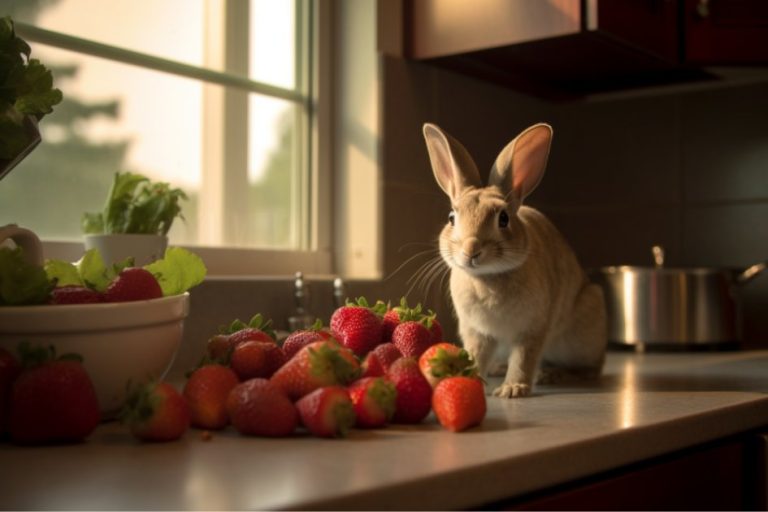Can Rabbits Eat Apples? (Exploring Safe Fruit Options)
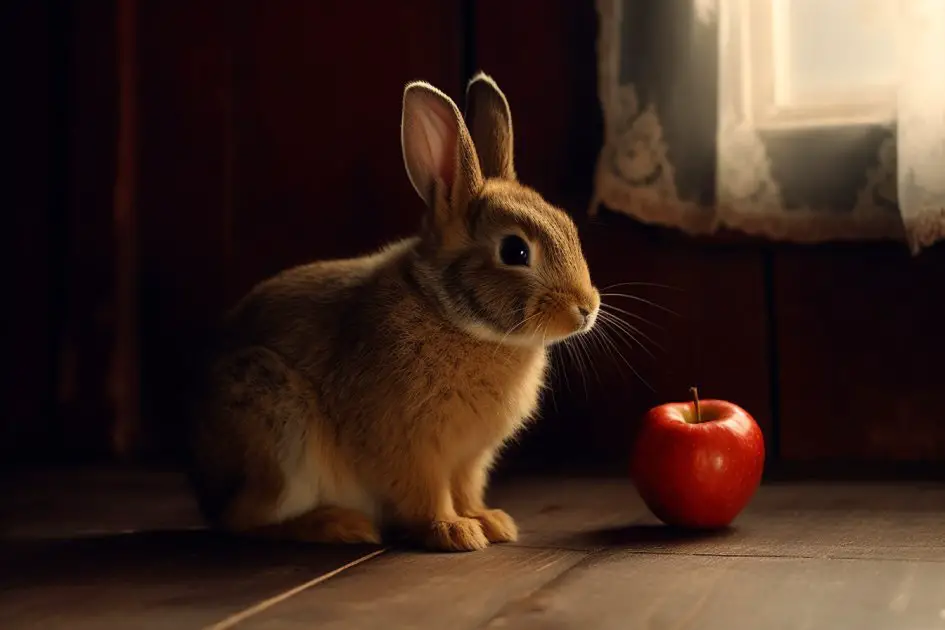
When it comes to feeding rabbits, many pet owners wonder if apples are a safe and healthy option. Apples, with their sweet taste and crunchy texture, may seem like an appealing treat for these furry friends. The good news is that rabbits can indeed eat apples, but there are some important considerations to keep in mind.
While apples can serve as a tasty treat for rabbits, it’s crucial to remember that moderation is key. Since apples are high in sugar, they should be offered sparingly to avoid digestive issues and weight gain. Additionally, it’s essential to remove the apple seeds before feeding them, as they contain a small amount of cyanide, which can be harmful to rabbits if consumed in large quantities.
Incorporating apples into a rabbit’s diet should be done carefully, ensuring that they continue to receive a balanced and nutritious meal plan. The primary source of nutrition for rabbits should consist of hay, fresh vegetables, and a limited amount of pellet food. Apples and other treats should make up a minimal portion of their overall dietary intake.
Apples in a Rabbit’s Diet
Rabbits can enjoy a variety of fruits and vegetables in their diet, with apples being one of the safe and nutritious options. In this section, we will discuss the role of apples in a rabbit’s diet, including the benefits and risks associated with feeding apples, along with safe amounts and the frequency of feeding.
Safe Fruits for Rabbits
While rabbits primarily require a diet rich in hay and dark leafy greens, incorporating small amounts of fruits can provide additional nutrients and serve as a tasty treat. Some safe fruits to feed rabbits include:
- Apples
- Bananas
- Blueberries
- Raspberries
- Pear
It is crucial to remove any seeds or pits from fruits, as they can be harmful to rabbits. The high sugar content in fruits means they should be given in moderation to prevent weight gain and gastrointestinal issues.
How Much and How Often to Feed Apples
When it comes to feeding apples to rabbits, proper portioning and frequency are essential. A general guideline is to offer a tablespoon-sized portion of apple per 2 pounds of rabbit body weight, no more than 1-2 times per week.
| Rabbit Weight | Apple Portion Size | Frequency |
| 2 lb (0.9 kg) | 1 tbsp | 1-2 times per week |
| 4 lb (1.8 kg) | 2 tbsp | 1-2 times per week |
| 6 lb (2.7 kg) | 3 tbsp | 1-2 times per week |
In conclusion, apples can be a nutritious and enjoyable part of a rabbit’s diet when fed in proper amounts and frequency. Remember to prioritize hay and leafy greens as the mainstay of their diet, with fruits and other vegetables as supplementary treats.
Preparing Apples for Your Rabbit
Rabbits can enjoy apples as a treat, but it’s essential to properly prepare the apple before feeding it to your pet. This section will explain how to remove harmful parts of the apple, and help you choose the right apple variety for your rabbit.
Removing Harmful Parts of the Apple
Not all parts of the apple are safe for rabbits. Certain parts, such as the core, seeds, stem, and leaves, can be toxic. To ensure your rabbit’s safety, follow these guidelines:
- Apple seeds: Apple seeds contain a small amount of cyanide, which is toxic to rabbits. Remove all seeds before offering the apple to your rabbit.
- Stem, leaves, and apple wood: The stem and leaves, as well as apple wood, can be harmful to rabbits if ingested. Remove the stem and leaves, and do not offer apple wood.
- Apple core: The core can be a choking hazard, so always remove the core before feeding apple to your rabbit.
- Apple skin: Wash the apple thoroughly to remove any pesticides or contaminants from the skin. Although the skin is safe for rabbits to eat, you may choose to peel the apple to reduce potential risks.
Choosing the Right Apple Variety
There are many different apple varieties, but not all of them are equally suitable for rabbits. Consider the following when selecting an apple variety for your rabbit:
- Sweetness: Rabbits tend to prefer sweeter apples, such as Golden Delicious, Fuji, Gala, Ambrosia, and Honeycrisp. Less sweet varieties like Granny Smith may be less appealing to your rabbit.
- Color: Red apples, like Red Delicious, Honeycrisp, and Gala, are generally palatable to rabbits, as are yellow apples like Golden Delicious. However, some rabbits may not like green apples, such as Granny Smith, due to their tartness.
- Texture: Rabbits may prefer apples with a firmer texture, like Fuji and Gala. Softer varieties like Golden Delicious might be less desirable.
It’s important to remember that every rabbit has individual preferences, so try offering them different apple varieties to determine which one they like best. Always introduce new foods gradually and in small quantities to ensure your rabbit can tolerate them without issue.
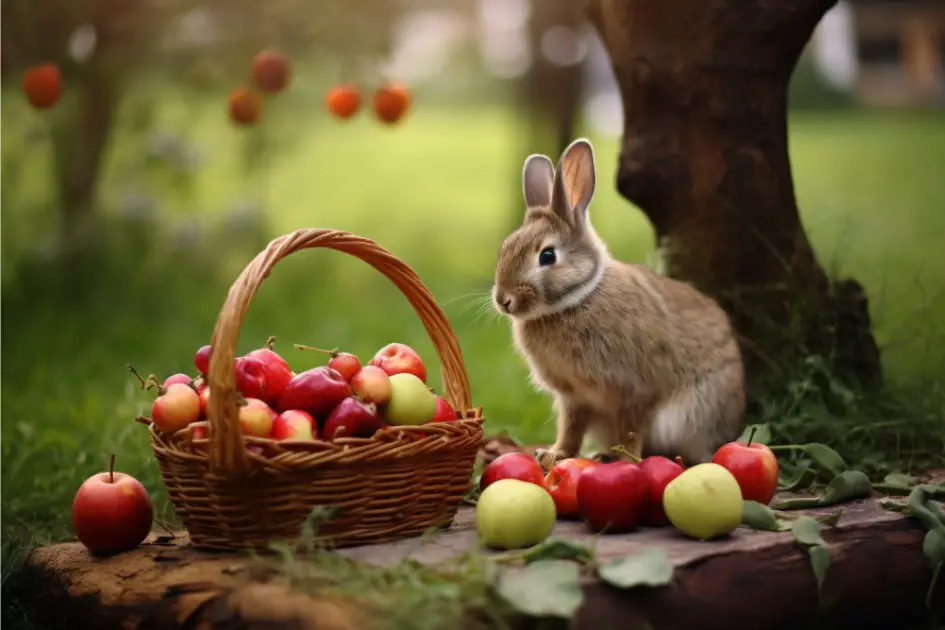
Health Benefits and Risks
Positive Impact on Rabbit’s Health
Rabbits can enjoy several health benefits from consuming apples in moderation. Apples provide essential vitamins and minerals, such as Vitamin C, Vitamin B-6, potassium, and calcium, which are important for maintaining overall rabbit health. Additionally, apples are a good source of dietary fiber, including pectin, which can support rabbit digestion.
Antioxidants and phytonutrients found in apples can also contribute to a healthy rabbit diet. These natural compounds protect a rabbit’s body from oxidative stress and help maintain healthy tissues, organs, and the immune system.
Not only do apples provide hydration due to their high water content, but they also serve as a low-calorie, occasional treat. Alternative sweet treats for rabbits include watermelon which similarly offers hydration and natural sugars in small quantities.
Potential Health Concerns
Although apples can provide valuable nutrients, there are some health risks associated with consuming apples, particularly when given in excess.
- Sugar content: Apples are high in natural sugars which, when consumed in large amounts, can lead to obesity and dental issues in rabbits. It is essential to monitor the sugar intake of pet rabbits to avoid weight gain and tooth decay.
- Cyanogenic glycosides: The seeds, stems, and leaves of apples contain cyanogenic glycosides, which break down into cyanide when ingested. Even small amounts of cyanide can cause health problems, such as breathing issues and upset stomachs in rabbits. In extreme cases, cyanide consumption can be fatal. To minimize this risk, remove seeds and other parts of the apple before offering it as a treat to pet rabbits.
- Digestive issues: Rabbits have sensitive digestive systems, and introducing new foods or giving too much of a particular food can lead to digestive upset. Symptoms may include diarrhea, vomiting, or a disrupted digestive process. Adult rabbits are better equipped to handle apples in moderation, while baby rabbits should not consume apples due to their delicate digestive systems.
As herbivores, rabbits require a diet primarily consisting of hay and leafy greens, though adding small amounts of fruits and vegetables, like apples, can provide nutritional variety. Pet owners should always introduce new treats gradually and closely monitor their rabbits for any negative reactions, especially when offering high sugar content options.
Tips for Feeding Apples to Rabbits
Feeding apples to rabbits can be a healthy and enjoyable treat for your pet; however, it’s essential to be mindful of portion sizes and frequency. Apples contain fructose, a natural sugar, which can lead to weight gain and other health issues if consumed in large quantities. To ensure your rabbit stays healthy, follow these tips when feeding apples to your furry friend.
Alternatives to Apples
While apples can serve as a tasty treat, rabbits should primarily consume hay and rabbit pellets as their main source of nutrition. Hay, which should make up 80-90% of a rabbit’s diet, provides essential nutrients, fiber, and promotes dental health. Likewise, rabbit pellets are fortified with vitamins and minerals that rabbits require.
There are also other suitable fruits and vegetables that can be offered as occasional treats to your rabbit. Some alternatives to apples include:
- Carrot
- Pear
- Broccoli
- Bell pepper
- Raspberry
Keep in mind that all fruits and vegetables should be given in moderation and should not replace hay or rabbit pellets in their diet.
Monitoring Your Rabbit’s Health
It is important to monitor your rabbit’s health as you introduce apples or other new foods into their diet. Look out for signs of digestive upset or inflammation, such as diarrhea or lethargy. If you notice these symptoms, stop feeding apples and consult your veterinarian. Additionally, make sure to:
- Introduce new foods one at a time, over several days, to help identify any problematic ingredients.
- Remove seeds and stems from apples, as they can be toxic to rabbits.
- Wash apples thoroughly to remove any residual pesticides or chemicals.
- Provide fresh water and monitor your rabbit’s water intake, as a decrease could indicate health issues.
By keeping an eye on your rabbit’s health and offering a balanced diet with occasional treats like apples, you can ensure your pet stays healthy and happy.

